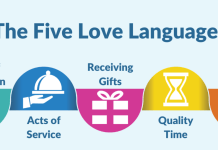Sometimes when we (accidentally) do wrong or say something bad, we simply say “I’m sorry”. These apologies are easy and usually readily accepted, and often the response we get is “no problem” or “It’s okay”. “I’m sorry” is such a simple phrase to say.

But, when “I’m sorry” are the words needed for truly hurtful words or acts, they can be the hardest ones to utter. And even when an apology is offered with the best of intentions, it can be undermined by the way in which it is worded. A poorly worded apology can result in lasting anger and undermine an important relationship.
Simply said, apologizing is not as simply as saying “I am sorry”.
The primary goal of every apology should be to ease that person’s emotional burden and gain their authentic forgiveness. Only if your apology is effective, your own feelings of guilt or regret will ease. However, for apologies to be effective, they have to be focused on the other person’s needs and feelings, not your own. And this is the hardest part.
Apologies should not be burdensome task if you know the essence of it. Here we unveil the tips you can do for an effective apology:
Be responsible for your actions
Sometimes our pride and ego make us think twice before apologizing. We are afraid we will not be seen as “flawless” anymore. But, we are human, nobody is perfect, and we are bound to make mistakes. So, when we made a mistake, admit it. Don’t ever try to run away from the responsibility or shift the blame to someone else.
Be certain that you have control of your emotions
Be sure that you have complete control of your emotions before apologizing. After a fight, for example, take some time to cool yourself down. Just make sure that your emotions do not flare up again when you are apologizing.
Be sincere
You have to be sincere if you want your apology to mean something. Reflect upon your words or actions and decide exactly what your mistakes were before apologizing. Attempt an apology only after you truly feel sorry for what you did.
Some words that you can use are: “I’m sorry for…”; “This is wrong because…”; “In the future I will…”; “I wish I hadn’t because…” and “Will you forget me? I promise I will not…”. Craft the words to show that you really acknowledge and understand the other person and regret the hurt you caused.
Make the apology in person
If possible, never make an apology by phone or text. A face-to-face apology will allow the other person to judge your sincerity. When they see that you are truly sorry, they will be more likely to forgive you.
Don’t use conditional language
Get rid of the words if and but in your apologies. Saying “I’m sorry if…” reflects that it is just a conditional apology that’s dependent on whether or not the person was offended. Don’t put it on the other person. And when you’re adding the word but at the end of your apology (“I’m sorry, but…”), you’re starting down the road of excuses for your behavior.




